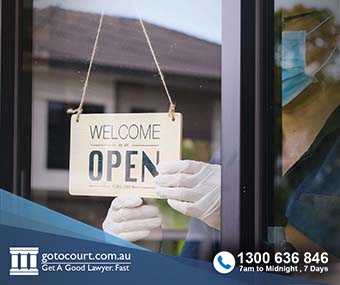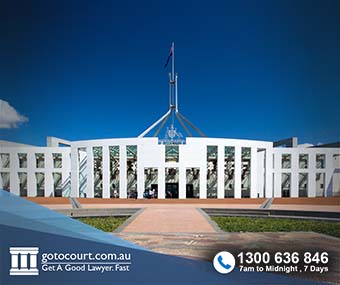Call our lawyers
now
or,
have our lawyers
call you
Should Voluntary Euthanasia Be Legalised?
Updated on Aug 12, 2018 • 5 min read • 266 views • Copy Link
Should Voluntary Euthanasia Be Legalised?
The Senate will on Tuesday debate a bill that if passed will allow the territories to legislate for voluntary euthanasia. The bill was introduced by David Leyonhjelm and would reverse the 1997 ban on the ACT and NT legalising euthanasia, which voided the 1995 decision by the Northern Territory parliament to legalise assisted suicide. The NT was at that time the only Australian jurisdiction to have done so. However, in 2017 Victoria passed a voluntary euthanasia law and the same year, the New South Wales parliament debated a similar bill, but this was narrowly voted down. The progress made by the states in considering legalising euthanasia has reignited debate as to why the territories should not also be allowed to do so. The bill currently being considered, if passed, will not necessarily lead to the territories legalising voluntary euthanasia. However, it will remove a barrier to them doing so.
What is euthanasia?
Euthanasia is the practice of intentionally terminating a patient’s life to end their suffering. Passive voluntary euthanasia refers to the practice of withdrawing medical treatment when a patient wishes for it to be withdrawn in order to end the patient’s life. Active voluntary euthanasia refers to the practice of providing medical intervention at a patient’s request to end the patient’s life.
The current debate relates to the legalisation of active voluntary euthanasia. All states and territories have already enacted legislation to regulate passive voluntary euthanasia in accordance with a patient’s previously expressed wishes.
What are the arguments for active voluntary euthanasia?
Supporters of active voluntary euthanasia argue that affected people are already making the choice to end their lives and that legislation legalising this would provide ‘support, scrutiny and regulation’ for them to do so safely and legally.
Supporters of the move also argue that the decision to die is a personal choice and that legislation prohibiting this choice is an instance of the government overreaching. Legislating for the practice would promote individual autonomy and allow individuals to choose a humane and dignified death.
What are the arguments against active voluntary euthanasia?
Opponents of legalising active voluntary euthanasia argue that such a practice would undermine the role of the doctor as a healer and the Hippocratic Oath. Providing better palliative care and support, they argue, would better safeguard the interests of the terminally ill and minimise their suffering.
Another argument against active voluntary euthanasia being legalised for terminally ill patients is that such a move could lead to the practice eventually being extended to persons whose lives are ‘no longer worth living’ for reasons other than illness and that the practice may end up being carried out involuntarily.
Northern Territory Euthanasia Laws
The Northern Territory legalised voluntary euthanasia in 1995, with the passage of the Rights of the Terminally Ill Act 1995. The bill passed with a majority of 15 to 10. The following year, a bill was introduced to repeal the act, but this was defeated with 14 votes to 11. However, the law was soon voided by the passage of the Euthanasia Laws Act by the federal parliament in 1997.
Under the Rights of the Terminally Ill Act 1995, physician-assisted suicide was permitted for a competent adult patient where the following conditions were satisfied:
- The patient was terminally ill and suffering severely;
- The patient had been given information on treatment options and had informed his or her doctor of a desire to end his or her life;
- The doctor was satisfied that the prognosis was terminal and that only palliative care treatment was available;
- The patient, or their agent, had signed a witnessed certificate of the request;
- Two ‘cooling off’ periods had elapsed.
The legislation allowed for the patient to rescind the request at any time and for the doctor who received the request to refuse to give the assistance.
Euthanasia laws in Victoria
In November 2017, The Voluntary Assisted Dying Act 2017 was passed by the Victorian parliament. The law passed after more than 100 hours of debate with 22 votes to 18 in the Senate and 47 to 37 in the lower house.
Under the Victorian legislation, which will take effect in mid-2019, a person will be able to access assisted suicide only if he or she fulfills the following conditions:
- Is over the age of 18;
- Has an incurable illness;
- Is suffering intolerably;
- Has less than six months to live.
Two doctors must sign off on the request for assisted suicide and the patient must submit two formal requests and a written statement. A doctor will not be allowed to initiate the discussion about voluntary euthanasia or to suggest it as an option. The drug that will be used is not specified in the legislation but will be prescribed by a doctor and dispensed by the pharmacist. If the patient is able to administer the drug themselves, they will do so. If they are unable to administer it themselves, a doctor will assist. The patient must nominate a contact person to return any unused substance to the pharmacist. Doctors will have the right to refuse to prescribe the lethal drug as conscientious objectors.
It is estimated that 150 Victorians will choose assisted dying each year.
Repealing the Euthanasia Laws Act
If the bill to repeal the Euthanasia Laws Act passes, the territories will regain the power to make their own laws in relation to assisted dying, which will place them in the same position as the states. Senator Leyonhjelm, who proposed the bill, said it would ‘reduce Commonwealth interference’ in the affairs of the ACT and NT. The Senator said the bill was needed to recognise the right of the territories to make laws for their citizens and that it addressed two issues: the right to die and territory rights.
Both major parties have been reported to intend to allow a conscience vote on the issue.
If you require legal advice please contact Go To Court Lawyers.

Affordable Lawyers
Our Go To Court Lawyers will assist you in all areas of law. We specialise in providing legal advice urgently – at the time when you need it most. If you need a lawyer right now, today, we can help you – no matter where you are in Australia.How It Works











1. You speak directly to a lawyer
When you call the Go To Court Legal Hotline, you will be connected directly to a lawyer, every time.


2. Get your legal situation assessed
We determine the best way forward in your legal matter, free of charge. If you want to go ahead and book a face-to-face appointment, we will connect you with a specialist in your local area.


3. We arrange everything as needed
If you want to go ahead and book a fact-to-face appointment, we will connect you with a specialist in your local area no matter where you are and even at very short notice.












